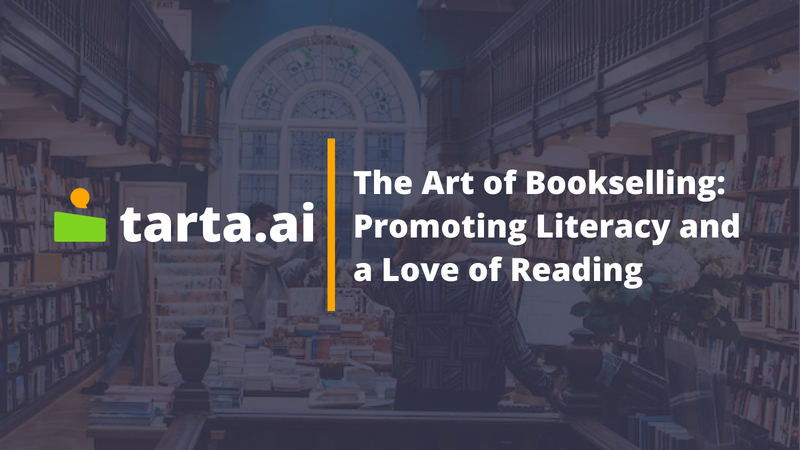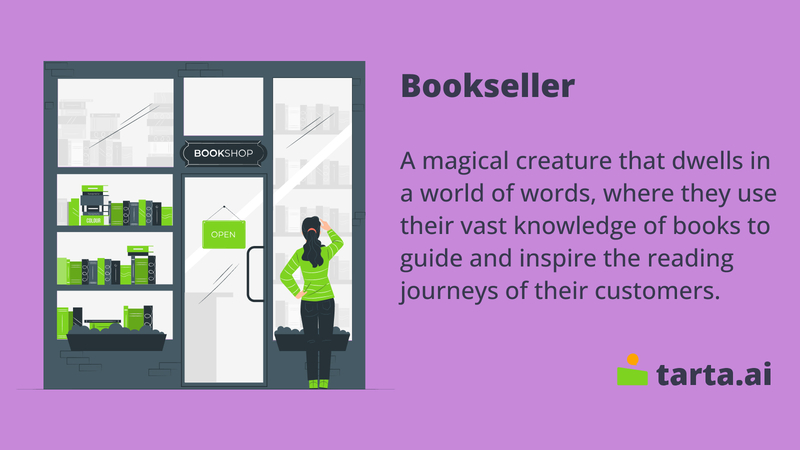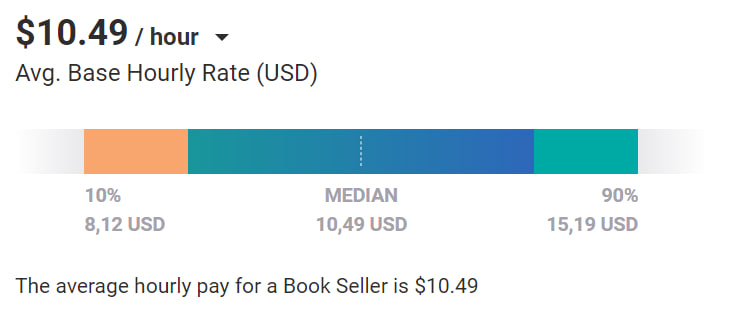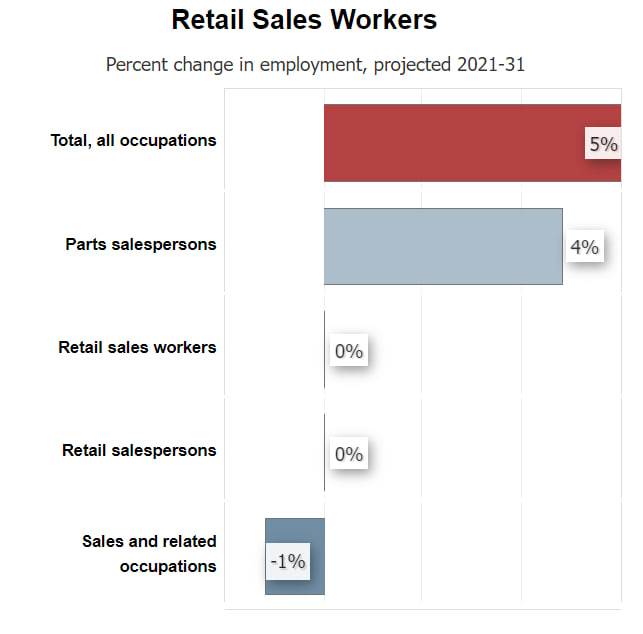The Art of Bookselling: Promoting Literacy and a Love of Reading

Bookselling is a vital and dynamic industry that provides individuals with the opportunity to share their passion for reading and books with others. From physical bookstores to online retailers, booksellers play a critical role in connecting readers with the books they love.
In this article, we will provide an overview of the bookselling industry, including the qualifications and skills required for a successful career as a bookseller, salary and benefits, tools and technologies used by booksellers, and the impact of various factors such as e-commerce and the COVID-19 pandemic on the industry. We will also explore various career paths within the industry and the pros and cons of working as a bookseller.
Whether you're a book lover looking to turn your passion into a career or a seasoned bookseller looking to enhance your skills, this article aims to provide helpful information to support your journey in the bookselling industry.
Position Overview
A bookseller is someone who sells books, either in a physical store or online. They may work in a bookstore, a library, or as an independent seller. Booksellers are knowledgeable about books and literature, and often provide advice and recommendations to customers. They may also order and stock books, maintain inventory, and handle customer service and sales transactions. Some booksellers specialize in a particular genre or type of book, while others offer a wide variety of books to suit different interests and preferences.

Key Qualifications
The key qualifications for a bookseller may vary depending on the specific job requirements and responsibilities, but here are some general qualifications that may be important:
- Knowledge of books and literature: Having a strong interest in books and literature, as well as a good understanding of different genres, authors, and publishers.
- Customer service skills: Being friendly, approachable, and able to communicate effectively with customers. Booksellers should be able to provide recommendations and advice, as well as handle customer complaints or concerns.
- Sales skills: Having strong sales skills, including the ability to persuade customers to make purchases and upsell additional products.
- Organizational skills: Being organized and able to manage inventory, keeping track of orders and shipments, and maintaining the store's appearance.
- Technology skills: Being comfortable using technology to manage inventory, process orders, and engage with customers.
- Physical stamina: Lifting and moving heavy boxes of books, standing for long periods of time, and performing other physically demanding tasks.
- Educational qualifications: While a formal education is not always required for a bookseller position, some employers may prefer candidates with a high school diploma or higher education.
Interesting fact:
The oldest known bookstore in the world is the Bertrand Bookstore in Lisbon, Portugal, which has been in operation since 1732.
Tasks and Expectations
The specific tasks and expectations of a bookseller may vary, but here are some common tasks and expectations:
- Greeting and assisting customers: Being friendly, approachable, and able to help customers find the books they are looking for. Booksellers should also be able to provide recommendations and advice on new releases or popular titles.
- Managing inventory: Ordering new books, tracking shipments, and maintaining accurate records of stock levels.
- Processing sales transactions: Handling cash and credit card payments, wrapping and bagging purchases, and providing receipts.
- Maintaining store appearance: Arranging books on shelves, dusting and sweeping, and ensuring that displays are attractive and up-to-date.
- Providing customer service: Addressing any issues with purchases or resolving conflicts with other customers.
- Staying up-to-date with industry trends: Staying up-to-date with industry news and trends, including new releases, popular authors, and changing customer preferences.
- Promoting the store: Promoting the store through various marketing and advertising channels, including social media, email newsletters, and events.
- Collaborating with colleagues: Working collaboratively with colleagues, including other booksellers, managers, and support staff, to ensure that the store operates smoothly and efficiently.

Photo: Pj Accetturo/Unsplash
Hard and Soft Skills
Hard skills and soft skills are both important for a bookseller. Hard skills are specific, teachable abilities that are necessary to perform a particular job, while soft skills are personal traits and interpersonal skills that enable effective communication and relationship-building.
Here are some examples of hard and soft skills that are important for a bookseller:
Hard Skills | Soft Skills |
Knowledge of books and literature | Customer service skills |
Communication skills | |
Basic math skills for processing sales transactions | Interpersonal skills |
Problem-solving skills | |
Knowledge of computer programs and systems used in inventory management and sales processing | Active listening skills |
Time management skills | |
Ability to use a cash register or point-of-sale system | Adaptability and flexibility |
Attention to detail | |
Knowledge of different book genres and reading levels | Sales skills |
Teamwork and collaboration skills |
A successful bookseller should possess a combination of these hard and soft skills in order to provide excellent customer service, manage inventory and sales effectively, and work well with colleagues and customers.
Interesting fact:
Shakespeare & Company, a famous independent bookstore in Paris, was once a gathering place for notable writers such as Ernest Hemingway, James Joyce, and F. Scott Fitzgerald.
Compensation
The salary of a bookseller in the US can vary depending on several factors such as the location, size of the bookstore, and the bookseller's level of experience. According to the data from the PayScale, the median hourly wage for booksellers is $10.49.

Source: Payscale
However, it is important to note that these figures are only estimates and may vary based on various factors mentioned above.
Strategies for Increasing Income
There are several strategies that a bookseller can use to increase their salary. Here are a few ideas:
- Gain additional skills and knowledge: Gaining additional skills and knowledge that are relevant to the industry can increase bookseller value to their employer. For example, taking courses or workshops on customer service, marketing, or inventory management can make a bookseller more valuable to their employer.
- Look for opportunities to take on additional responsibilities: Taking on additional responsibilities such as managing inventory, ordering new books, or coordinating events can also help booksellers to increase their earnings. This shows initiative and leadership potential, which can lead to a raise or promotion.
- Negotiate for a higher salary: Booksellers can negotiate for a higher salary. This should be done after researching the average salary for their position and presenting a strong case for why they deserve a raise.
- Consider working for a larger bookstore or chain: Larger bookstores or chains may offer higher salaries and more opportunities for advancement. A bookseller may want to consider applying for positions at these types of stores if they are looking to increase their salary.
- Build a strong customer base: A bookseller who is able to build a strong customer base and increase sales may be able to negotiate for a higher commission or bonus structure.
Increasing salary as a bookseller requires a combination of hard work, skill-building, and strategic thinking. By taking these steps, a bookseller can increase their value to their employer and position themselves for future success in the industry.
Interesting fact:
In the UK, there is an annual competition called the "Independent Bookshop of the Year" that recognizes and celebrates the best independent bookstores in the country.
Supplementary Perks
In addition to a salary, booksellers may also be eligible for various benefits, which can vary depending on the employer and the position. Here are some examples of benefits that a bookseller may receive:
- Employee discounts: Many bookstores offer their employees a discount on books and merchandise, which can be a valuable perk for booksellers who are passionate about reading.
- Health insurance: Some bookstores offer health insurance benefits to their employees, which can help cover the costs of medical care and prescription medications.
- Retirement plans: Booksellers may be eligible to participate in a retirement plan, such as a 401(k), which can help them save for their future.
- Paid time off: Booksellers may receive paid time off, such as vacation days or sick days, which can provide them with much-needed time off to rest and recharge.
- Training and development opportunities: Many bookstores offer their employees opportunities to attend training and development programs, such as workshops on customer service or book merchandising. These programs can help booksellers build new skills and advance their careers.
- Flexible schedules: Some bookstores offer flexible work schedules, which can be particularly appealing to booksellers who may have other commitments or interests outside of work.
The benefits that a bookseller may receive can vary depending on the employer and the position. It's important for booksellers to research the benefits that are available to them and to negotiate for the best possible compensation package when they are considering a new job or looking to increase their salary.
Work Environment
In this section, we will explore some of the most common work environment settings, tools and technologies used by booksellers and how they can be leveraged to help bookstores thrive in an increasingly competitive market.

Photo: Pauline Loroy/Unsplash
Work Environment Settings
As a bookseller, your work environment should be conducive to promoting a relaxed and comfortable atmosphere where customers can browse, shop, and feel at ease. Here are some suggestions for creating an ideal work environment as a bookseller:
Setting | Description |
Lighting | Make sure the lighting is adequate, but not too bright or harsh, as it can be overwhelming for customers. Natural lighting is always preferable, but if that is not possible, use soft, warm lighting to create a welcoming atmosphere. |
Display | Display your books in an organized and appealing way. Use attractive bookshelves, tables, and display cases to showcase your books, and ensure they are clean and well-maintained. Consider creating themed displays to draw attention to particular books or genres. |
Comfortable Seating | Offer comfortable seating for customers who want to sit and read or browse through books. You could have armchairs, benches or sofas, as well as tables or desks where customers can take notes or work on a laptop. |
Music | Background music can help to create a calming and pleasant environment, but make sure it is not too loud or distracting. Soft instrumental music or classical music is ideal. |
Scent | Pleasant scents can help to create a relaxing environment. Consider using essential oils, scented candles or diffusers to create a subtle and pleasant aroma. |
Ambiance | The ambiance should be relaxed and inviting, with a welcoming and friendly atmosphere. Train your staff to be courteous, helpful and knowledgeable about books, and encourage them to engage with customers in a friendly and non-intrusive way. |
Cleanliness | The store should be clean and well-maintained at all times. Regular cleaning and maintenance will help to create a welcoming and professional atmosphere, and ensure that customers feel comfortable and at ease. |
By creating an ideal work environment for a bookseller, you can ensure that your customers will feel comfortable, relaxed and engaged. This will help to promote a positive image of your store, and encourage customers to return and recommend your store to others.
Interesting fact:
Some booksellers also offer services such as book clubs, author events, and writing workshops to engage with their local communities and foster a love of reading.
Tools and Technologies
Booksellers use a variety of tools and technologies to manage their inventory, process orders, and engage with customers. Here are some of the most common tools and technologies used by booksellers:
- Point of Sale (POS) Systems: POS systems are used by booksellers to manage transactions, track inventory, and process payments. These systems may include barcode scanners, cash registers, credit card readers, and software that allows booksellers to track sales and inventory.
- Inventory Management Systems: Inventory management systems allow booksellers to track their stock levels and monitor sales trends. These systems may include software that can generate reports, set reorder points, and automate restocking.
- E-commerce Platforms: Many booksellers sell their products online through e-commerce platforms such as Amazon, eBay, or their own online store. These platforms provide booksellers with an additional channel to reach customers and manage orders.
- Book Databases: Book databases like BookFinder or WorldCat allow booksellers to look up information on books such as publication date, author, ISBN, and pricing.
- Social Media: Social media platforms like Facebook, Twitter, and Instagram are used by booksellers to promote their store, share information about new arrivals and sales, and engage with customers.
- Mobile Apps: Some booksellers can use mobile apps to provide customers with an easy way to browse inventory, place orders, and receive updates on new arrivals.
- Customer Relationship Management (CRM) Systems: CRM systems allow booksellers to manage customer information, track purchases, and personalize their marketing efforts.
By using these tools and technologies, booksellers can improve their operations, better manage inventory, and enhance their customer experience.
Education and Training
Education and training requirements for a bookseller can vary depending on the employer, but generally, a high school diploma or equivalent is required. In addition, employers may prefer candidates who have completed some post-secondary education, such as an associate's or bachelor's degree in a relevant field like English, literature, or marketing.

Photo: Rumman Amin/Unsplash
Some booksellers may also benefit from completing a vocational program in retail or business administration. These programs typically cover topics such as customer service, inventory management, merchandising, and sales techniques.
On-the-job training is also typically provided by the employer. This training may cover topics such as store policies and procedures, product knowledge, point-of-sale systems, and customer service.
Booksellers may also need to stay current with industry trends and new releases by attending trade shows, reading industry publications, and engaging with customers and fellow booksellers through online forums and social media.
Finally, a passion for books and a love of reading are essential qualities for any successful bookseller. Being able to share this enthusiasm with customers and provide knowledgeable recommendations can be the difference between a satisfied customer and a loyal one.
Advancement Opportunities
The bookselling industry is an exciting and dynamic field that involves the sale of books and other printed materials to customers. Booksellers work in a variety of settings, including independent bookstores, chain bookstores, and online marketplaces. This section will provide an overview of the bookselling industry, including career options and specializations. If you're interested in exploring related to a bookseller career paths, this section will provide valuable information to help you get started.

Photo: Takafumi Yamashita/Unsplash
Specializations in Bookselling Industry
There are several specializations in the bookselling industry, including:
Specialization | Description |
Fiction bookselling | This specialization involves selling books of various genres of fiction, such as mystery, romance, sci-fi, and fantasy. |
Non-fiction bookselling | This specialization involves selling books that are focused on factual information or topics, such as history, biography, self-help, or business. |
Children's bookselling | This specialization involves selling books specifically targeted towards children, such as picture books, early readers, and young adult novels. |
Rare and antiquarian bookselling | This specialization involves selling rare, out-of-print, or antique books that have high value due to their age, rarity, or historical significance. |
Academic bookselling | This specialization involves selling books and other educational materials specifically geared towards students, scholars, and academics. |
Online bookselling | This specialization involves selling books through online platforms, such as Amazon or eBay, and may involve managing online listings, shipping, and customer service. |
Independent bookselling | This specialization involves owning and operating an independent bookstore, which may involve selecting and purchasing books, managing inventory, and promoting the store in the local community. |
There are also opportunities for specialization within the various roles in the bookselling industry, such as sales, marketing, management, or buying.
Interesting fact:
Some rare and antiquarian bookstores specialize in selling rare and collectible books, which can sometimes fetch prices in the tens of thousands or even millions of dollars.
Other Career Possibilities
There are several other career options related to the bookselling industry, including:
- Publishing: The publishing industry involves editing, producing, and distributing books, magazines, and other forms of printed media.
- Literary agent: A literary agent works with authors to help them find publishers and negotiate book deals.
- Librarian: A librarian works in a library, managing and organizing collections of books, as well as helping patrons find the materials they need.
- Book reviewer: A book reviewer writes reviews of books for newspapers, magazines, or online publications.
- Book editor: A book editor works with authors to help them improve their writing, and manages the editorial process of bringing a book to publication.
- Literary critic: A literary critic analyzes and critiques books, providing insight into the themes, writing style, and overall quality of a work.
- Literary translator: A literary translator translates books from one language to another, making literature available to a wider audience.
These are just a few of the many career options related to the bookselling industry. Each of these careers requires different skills and qualifications, so it's important to do research and determine which career path is best for you.
Employment Trends
In this section, we will explore the demand for booksellers in the US and the various flexible and remote work arrangements that bookstores can offer to meet the needs of their employees and their business. We will also discuss the benefits of these arrangements and considerations for implementing them effectively.
Booksellers Demand
The demand for booksellers in the US has been affected by several factors in recent years. With the rise of e-commerce, many consumers are now purchasing books online rather than visiting brick-and-mortar bookstores. Additionally, the COVID-19 pandemic has further accelerated the shift towards online shopping, as many consumers have been forced to stay at home.
However, there is still a significant demand for booksellers in the US, particularly for independent bookstores that offer a unique selection of books and a personalized shopping experience. These bookstores often cater to specific communities and niches, providing a sense of community and cultural significance. Many consumers also appreciate the opportunity to browse and interact with physical books, which cannot be replicated through online shopping.
According to the BLS, employment of retail sales workers (which includes booksellers) is projected to show little to no change from 2021 to 2031. The demand for booksellers, as well as other retail salespersons, will depend on factors such as consumer spending, e-commerce sales, and competition from online retailers.

Source: U.S. Bureau of Labor Statistics, Employment Projections program
Overall, while the demand for booksellers in the US may have shifted in recent years, there is still a strong market for independent bookstores that provide a unique shopping experience and cater to specific communities.
Flexible and Remote Work Arrangements
Flexible and remote work arrangements for booksellers can provide many benefits, both for the booksellers and the bookstores they work for. Here are a few potential options:
- Flexible scheduling: Bookstores can offer flexible scheduling to their booksellers, allowing them to choose their own hours or adjust their schedules to better fit their personal lives. This can help to improve work-life balance and reduce employee burnout.
- Remote work: Depending on the job duties involved, some booksellers may be able to work remotely. For example, a bookseller who primarily handles online orders and customer service inquiries may be able to do so from home.
- Hybrid work: Another option is a hybrid work arrangement, where booksellers split their time between working remotely and working in the bookstore. This can allow for greater flexibility and reduce commuting time and costs.
- Job sharing: Job sharing is a flexible work arrangement where two or more employees share the responsibilities of a full-time position. This can be a great option for booksellers who need flexibility due to personal or family commitments.
Implementing flexible and remote work arrangements for booksellers can help to improve employee satisfaction, reduce turnover, and increase productivity. It's important for bookstores to consider the specific needs of their employees and their business when deciding on the best arrangements to offer.
Interesting fact:
According to a survey conducted by the American Booksellers Association, independent bookstores saw a 31.6% increase in sales in 2020, despite the COVID-19 pandemic.
Job Fulfillment
In this section, we will explore the pros and cons of working as a bookseller. As a bookseller, you have the opportunity to work in a field you are passionate about, surrounded by books and like-minded individuals. However, like any job, there are also potential drawbacks to consider, including physical demands, irregular schedules, low pay, and pressure to meet sales targets. By examining both the benefits and challenges of this profession, you can make an informed decision about whether working as a bookseller is the right choice for you.
Pros | Cons |
Access to books Working as a bookseller means that you will have access to a vast collection of books, including new releases and hard-to-find titles. This can be a great perk for book lovers who want to stay up-to-date with the latest trends in literature. | Physical demands A bookseller job can be physically demanding, requiring long periods of standing, lifting heavy boxes of books, and stocking shelves. |
Interaction with customers As a bookseller, you will have the opportunity to interact with customers who share your love of books. You can help customers find the perfect book for their needs and recommend titles that they may not have considered before. | Irregular schedule Bookstores often have irregular hours, including nights and weekends, which can make it difficult to maintain a consistent schedule. |
Knowledge of the book industry Working as a bookseller can provide you with a wealth of knowledge about the book industry, including publishers, distributors, and the latest trends in literature. | Low pay Booksellers typically earn low wages compared to other professions, and it can be difficult to make a living solely from working as a bookseller. |
Creativity A bookseller job can be creative, especially when creating displays and promoting new releases. You can use your creativity to make your store stand out and attract customers. | Pressure to meet sales targets As with any retail job, there can be pressure to meet sales targets, which can create stress for booksellers who are passionate about books but not necessarily sales. |

Photo: Jason Leung/Unsplash
In conclusion, the bookselling industry continues to evolve and adapt to various challenges and changes, such as technological advancements and the COVID-19 pandemic. However, despite these challenges, booksellers remain an essential part of the literary world, connecting readers with the books they love and providing personalized recommendations and expertise.
To succeed as a bookseller, one must possess a combination of skills, including knowledge of books and literature, customer service skills, sales skills, organizational skills, and technology skills. It is also important to stay up-to-date with industry trends and new releases and to have a passion for reading and books.
Whether you're considering a career in bookselling or are already a seasoned professional, the bookselling industry offers numerous opportunities for growth, creativity, and fulfillment.
- Booksellers play a vital role in the literary world, connecting readers with the books they love and providing personalized recommendations and expertise.
- To be a successful bookseller, one must possess a combination of skills, including knowledge of books and literature, customer service skills, sales skills, organizational skills, and technology skills.
- Salary for booksellers can vary depending on several factors such as location, size of the bookstore, and experience. Strategies for increasing salary include gaining additional skills and knowledge, taking on additional responsibilities, negotiating for a higher salary, and considering working for larger bookstores or chains.
- Booksellers use a variety of tools and technologies to manage their inventory, process orders, and engage with customers. While technology is a powerful tool, it's not a substitute for the personalized service and expertise that booksellers offer.
- The demand for booksellers in the US has been impacted by various factors such as e-commerce and the COVID-19 pandemic. Independent bookstores that offer unique books and personalized shopping experiences still thrive, and flexible and remote work arrangements are becoming more common.
- Working as a bookseller has its benefits, such as access to books, interaction with customers, and knowledge of the book industry, but also potential drawbacks, such as physical demands, irregular schedules, and low pay. Understanding both the positives and negatives of the profession can help individuals make an informed decision about whether a bookseller job is a good fit for them.
FAQ
What are some popular bookstore chains?
Some popular bookstore chains in the United States include Barnes & Noble, Books-A-Million, and Half Price Books. There are also many independent bookstores that can be found in cities and towns across the country.
What are the working hours of a bookseller?
Booksellers may work full-time or part-time, and their schedules can vary depending on the needs of the store. They may work early mornings, late evenings, weekends, and holidays.
What is the hiring process for a bookseller?
The hiring process for a bookseller may vary by employer, but typically involves submitting a job application and undergoing an interview process. Depending on the employer, a candidate may be required to take a skills assessment or complete a background check before being offered a position.
What are some ways a bookseller can improve their sales and customer service skills?
Some ways a bookseller can improve their sales and customer service skills may include:
- Taking courses or workshops on sales techniques and customer service
- Shadowing experienced booksellers to learn from their interactions with customers
- Practicing active listening and asking open-ended questions to better understand customers' needs and preferences
- Developing product knowledge and staying up-to-date on new books and trends in the industry
- Seeking feedback from customers and colleagues to improve their performance